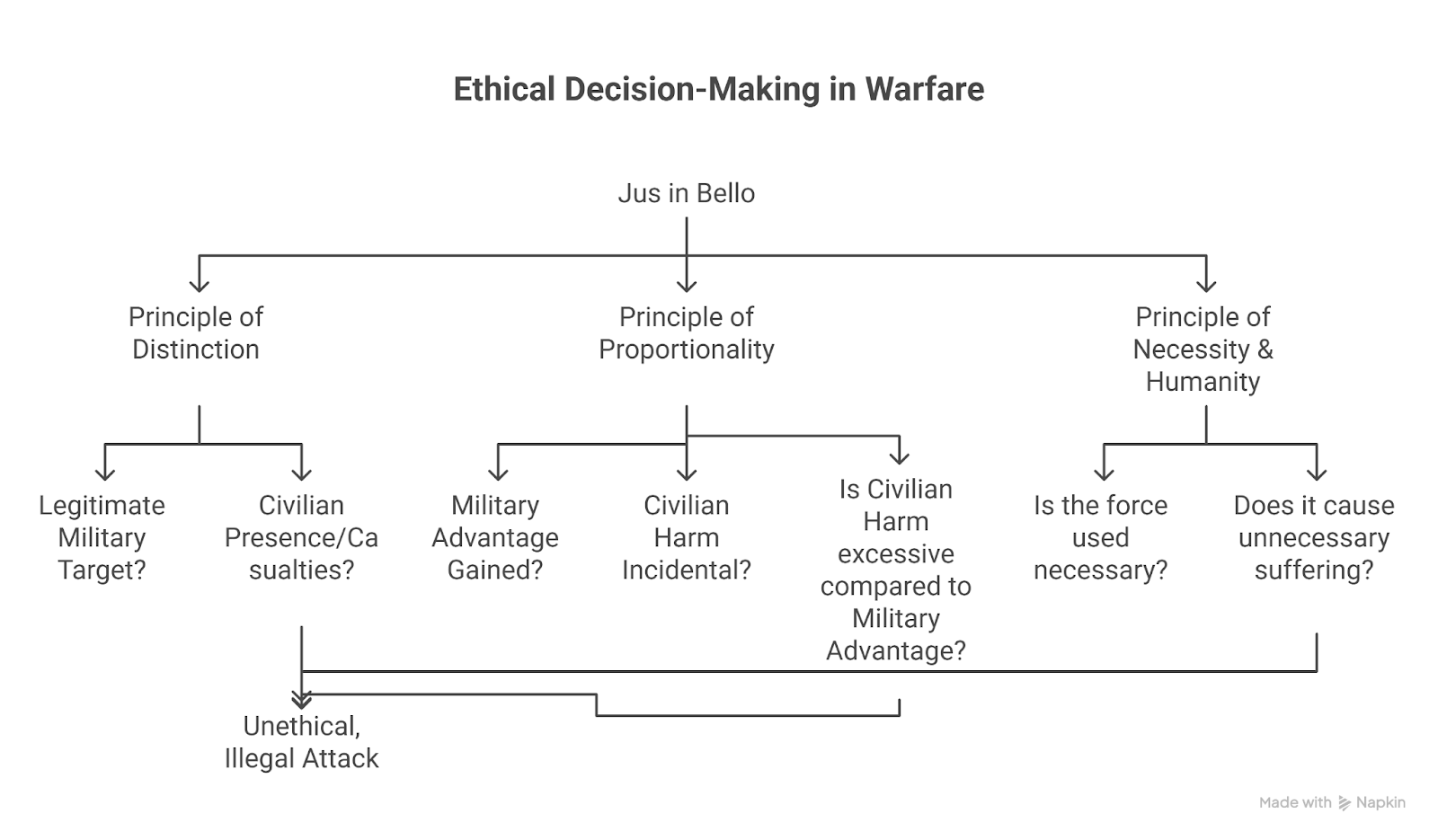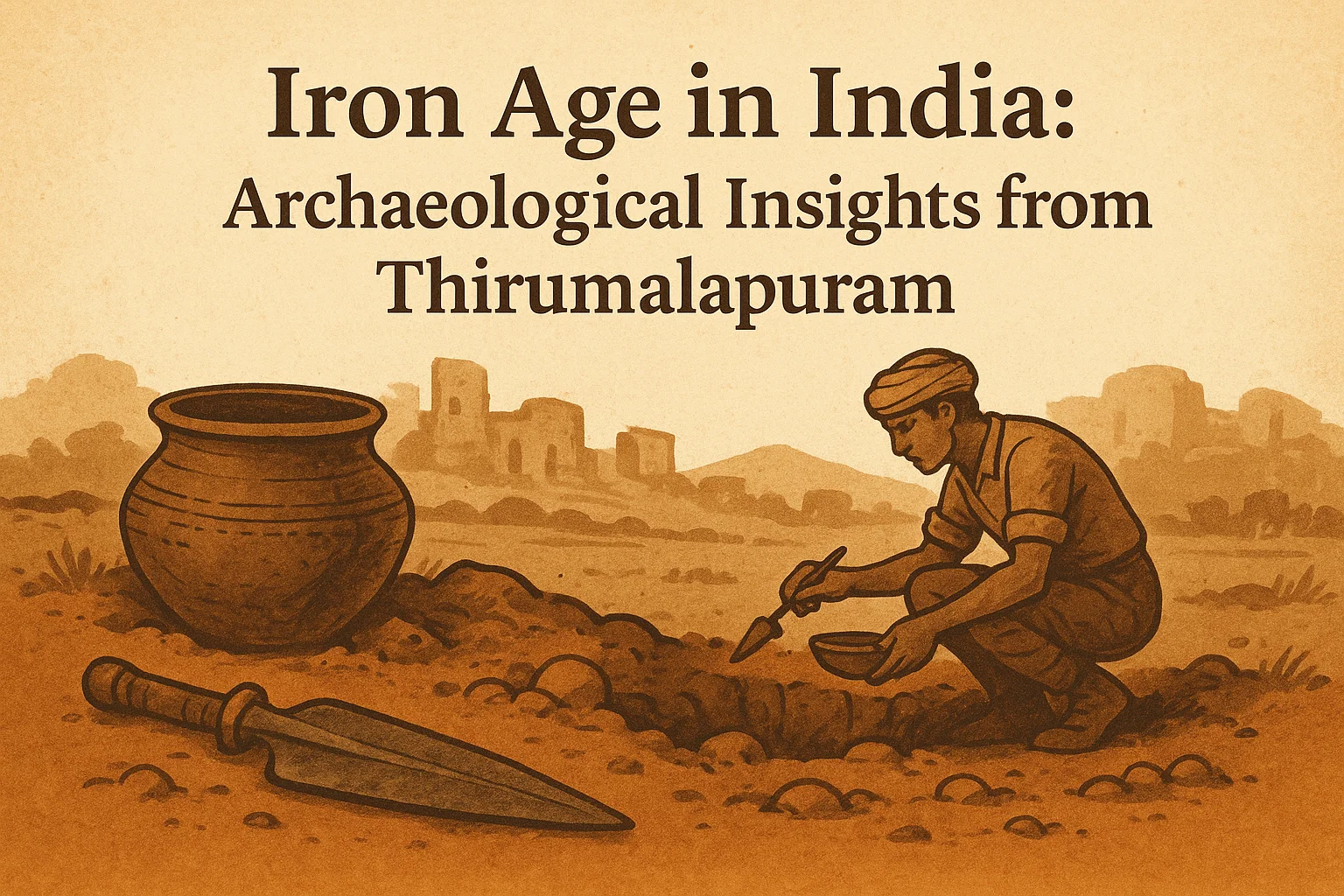Navigating the Ethics of Modern Warfare
Context: The Israel-Hamas conflict has entered a new, intensified phase with the Israeli Defense Forces (IDF) ramping up operations in Gaza City. The situation has drawn significant international opposition, including Nobel laureates, calling for an immediate end to the “human-made humanitarian crisis.”
What should be the ethical considerations while launching and sustaining the war?
Christian ethics of jus ad bellum (the right to wage war) and Realist school of thought (Machiavelli) justify the launching of wars, while the considerations under jus in bello (justice in war) and the Roman Just War Tradition govern the principles in their sustenance. They intend to limit the horrors of armed conflict. These are also central to International Humanitarian Law (IHL), including the Geneva Conventions.
- Principle of Distinction: It mandates that combatants must always distinguish between military targets and civilians or civilian objects. Attacks must not be directed at civilians.
- Example: The Israeli strike on the Mushtaha tower, justified by Israel as targeting “Hamas surveillance,” directly tests this principle.
- Principle of Proportionality: Even if a target is military, an attack is prohibited if the anticipated incidental loss of civilian life or injury to civilians, or damage to civilian objects, would be excessive in relation to the concrete and direct military advantage anticipated.
- Example: With reports of over 60,000 Palestinian deaths, including thousands of children and infants, the global scientific community’s statement argues that the scale of civilian casualties is inherently disproportionate to any military objective, constituting “horrors visited on a civilian population.”
- Principle of Necessity and Humanity: The Martens Clause, which dictates that even in the absence of specific treaties, civilians are protected by principles of humanity and the dictates of public conscience.

- Example: The widespread destruction of civilian infrastructure (hospitals, schools, homes) leading to shortages of food, medicine, and the collapse of education, as highlighted by the scientists, raises ethical questions about whether the campaign’s methods violate this principle of humanity.
What are the ethical considerations to stop the continuation of ongoing conflicts?
The decision to end a war involves jus post bellum (Justice After War) and the Idealist (Buddhism) considerations.
- Reassessment of Right Intention and Proportionality (jus ad bellum): The original reason for going to war (e.g., self-defense after Hamas’s attack) must be continually reassessed.
- Duty to Protect Human Rights and Prevent Atrocity: There is a growing ethical and international norm, known as the Responsibility to Protect (R2P), which holds that sovereignty entails a responsibility to protect populations from mass atrocities. If a state fails to do so, the international community has a responsibility to intervene, including through diplomatic and humanitarian means.
- Ethics of Ceasefire and Pursuing Peace: Ethically, a war should end in a way that establishes a just and sustainable peace, not merely a victor’s peace. This involves considerations for humanitarian aid, justice for war crimes, and political reconciliation.
- International Legitimacy and Diplomatic Isolation: Continued military action that loses international legitimacy can have long-term strategic and ethical costs. Diplomatic and cultural isolation can be a powerful non-military force to halt a conflict.
Example: The decision by the International Olympiad on Astronomy and Astrophysics (IOAA) to suspend Israel’s national team is a clear example of this “soft power” backlash.
“In modern war there is no such thing as victor and vanquished. There is only a loser, and the loser is mankind.” — U Thant, Former Secretary-General of the United Nations


